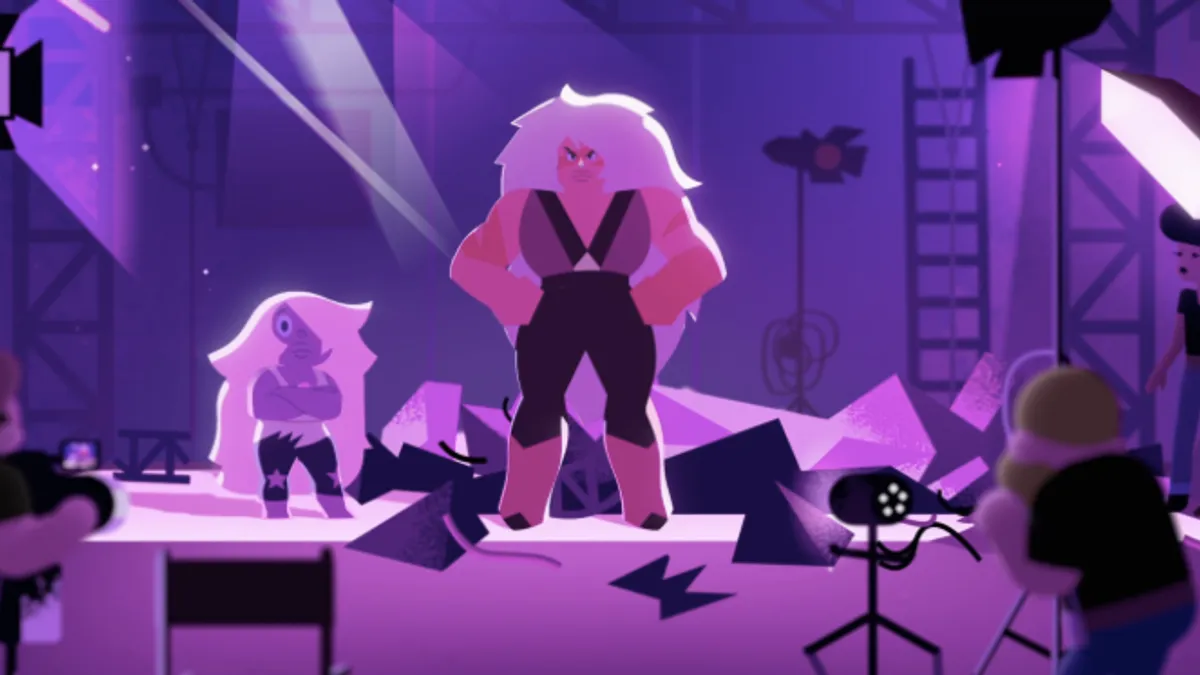Dive Brief:
- Unilever brand Dove announced a two-year partnership with the Cartoon Network series "Steven Universe" in an effort aimed at educating young people on body confidence, a news release announced.
- The campaign's rollout centers on a series of six animated short films directed by the show's creator Rebecca Sugar. The content was created with the Dove Self-Esteem Project and the help of Dr. Phillippa Diedrichs, of the Centre for Appearance Research at the University of the West of England, to ensure that it's scientifically grounded in evidence about body image. Later this year, an original song featuring the show's cast, a music video and an educational e-book will launch.
- "Steven Universe," the first animated series on Cartoon Network created by a woman, focuses on themes of inclusivity, empathy and relatability. The show depicts a coming-of-age story around Steven, the little brother of a team of "magical aliens," the Crystal Gems, who defend planet Earth.
Dive Insight:
Body positivity, self-confidence and diversity have been a hallmark of Dove campaigns for several years. Targeting young people with the help of the popular "Steven Universe" might help Dove extend the shelf life of its "Real Beauty" messaging to a new generation while also making a positive social difference through an array of media content including animation, music and an e-book.
Identity is a marketing theme that resonates with young audiences. While "Steven Universe" is often deemed a kids' show, a fan poll found that the average viewer is age 22, according to Slate. Members of Gen Z are particularly responsive to brands that help them foster their own identities, and 30% report they've felt excluded by brands because of it, according to recent PFSK research.
Along with Real Beauty, Dove launched its Self-Esteem Project in 2004 to create educational programs aimed at helping young people build confidence in their body image, and committed to reaching 40 million consumers by 2020. With the new "Steven Universe" partnership, the brand said it will now reach 20 million more.
Despite these initiatives, Dove has made several missteps in marketing around sensitive topics. Last fall, it had to pull and apologize for an ad that showed a black woman removing a brown top to reveal a white woman underneath, which many perceived as washing away race. Dove last year also faced backlash for limited-edition packages of body wash designed to resemble different female body types after many consumers said the depictions were unflattering or ridiculous.














